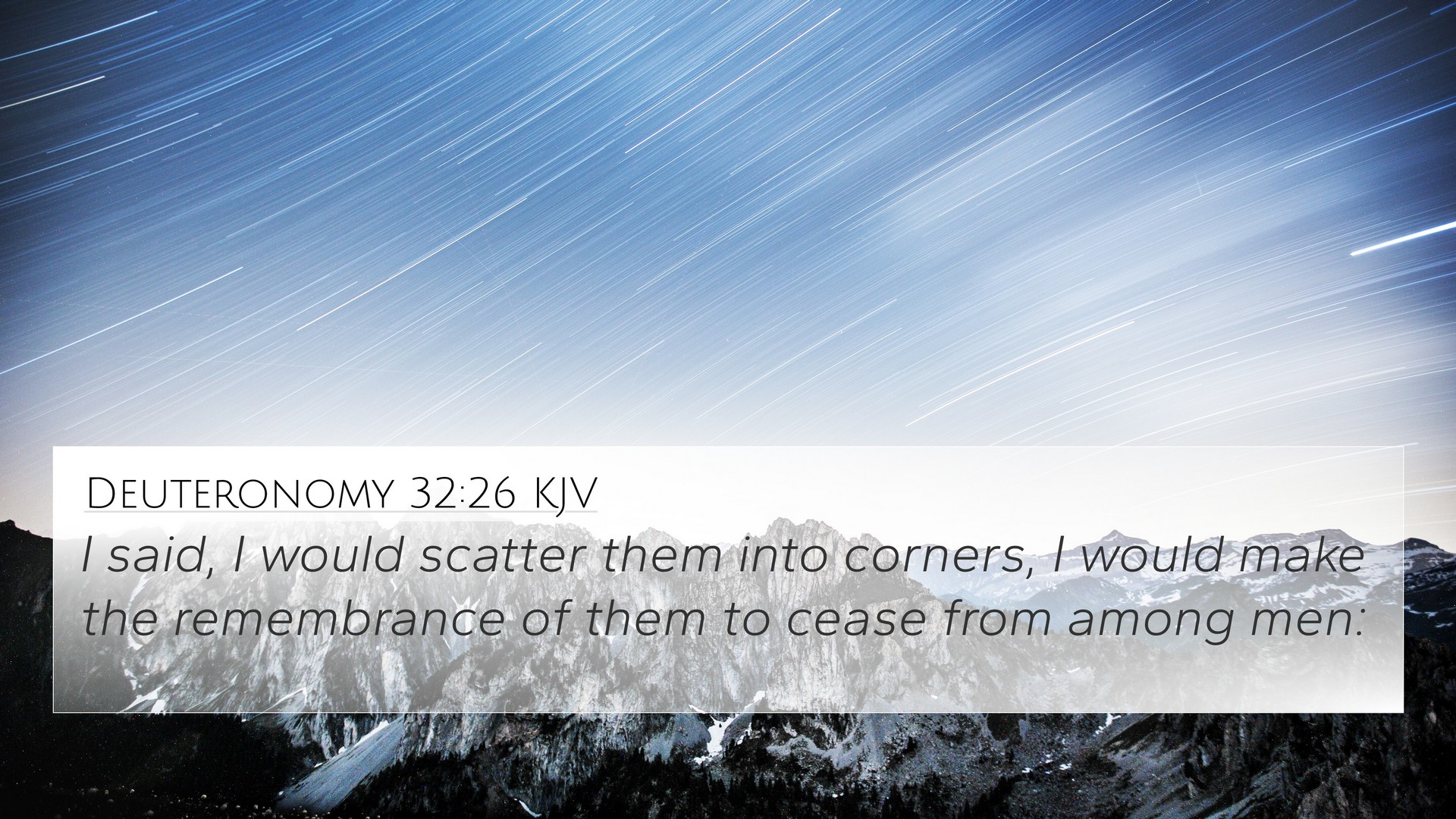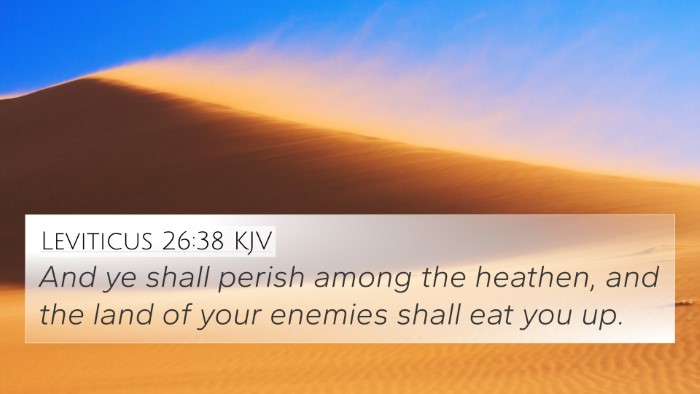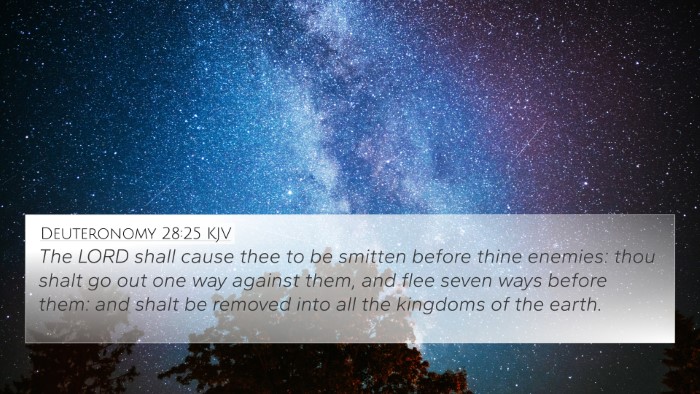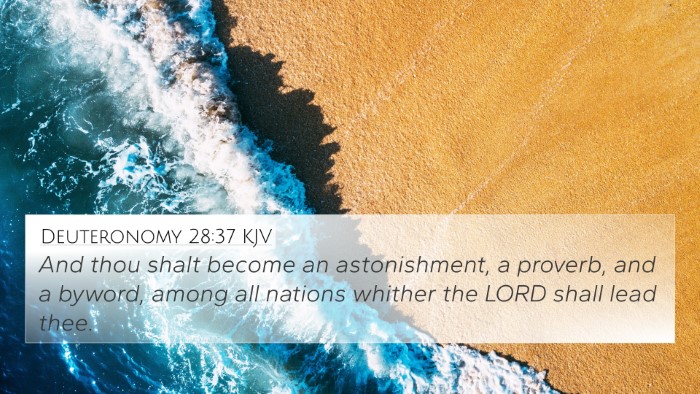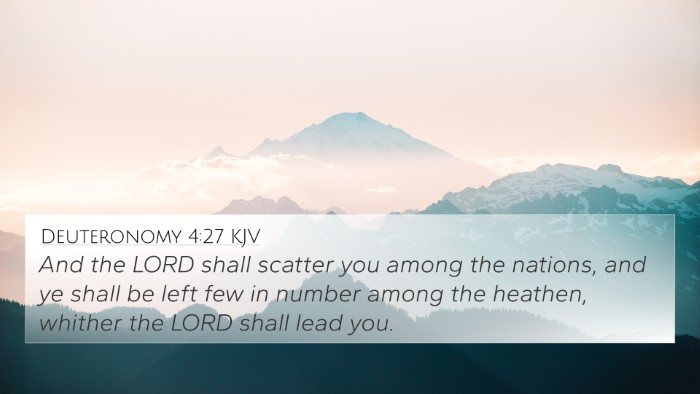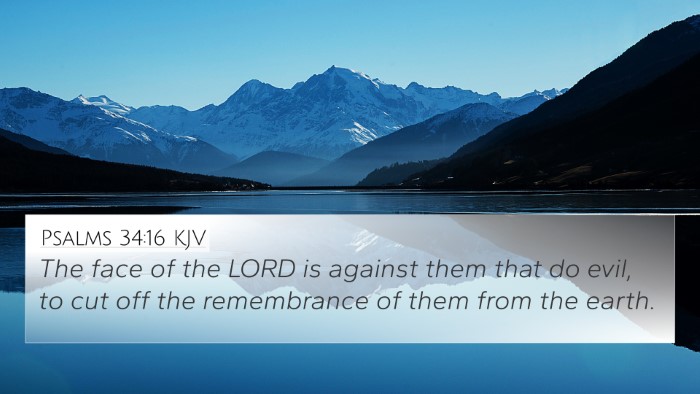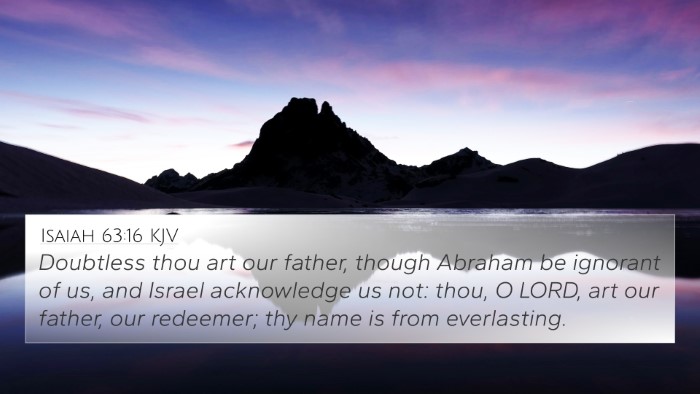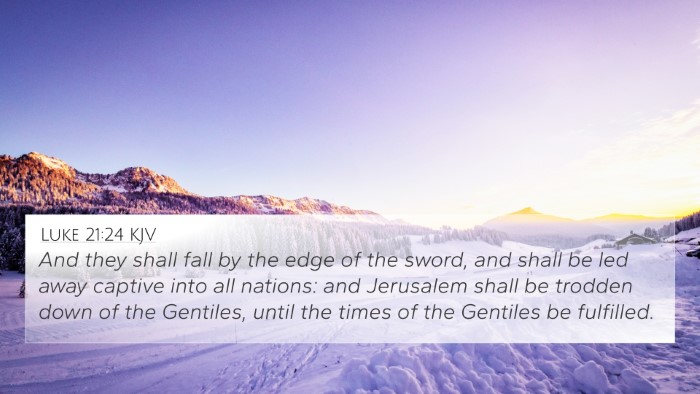Deuteronomy 32:26 - Summary and Interpretation
This verse is part of the Song of Moses, a profound poetic reflection on Israel's history and their relationship with God. In Deuteronomy 32:26, the speaker conveys the idea of God's judgment and the potential consequences of Israel's actions. Here, God expresses His intention to hide His face from them, indicating a withdrawal of His protective presence.
Verse Text
Deuteronomy 32:26 (KJV): "I said, I would scatter them into corners, I would make the remembrance of them to cease from among men."
Meaning and Insights
Interpretations from various commentaries provide depth to this verse:
-
Matthew Henry:
Henry reflects on the severe judgment of God against Israel due to their unfaithfulness, depicting His desire to scatter them for the sake of their transgressions. The scattering symbolizes both physical exile and spiritual separation from God.
-
Albert Barnes:
Barnes emphasizes the profound grief of God over His people’s rebellion, noting that the scattering mentioned is a divine response to Israel’s persistent disobedience. He suggests that God's intention to make their remembrance cease is meant to illustrate the severity of their loss of favor.
-
Adam Clarke:
Clarke discusses the implications of being "scattered into corners" as an indication of punishment and abandonment. He remarks on the futility of God's people forgetting Him and suggests that divine judgment would lead to a national and cultural oblivion.
Thematic Connections and Cross-References
This verse connects to several other scripture passages that reflect similar themes of judgment, remembrance, and divine presence. Here are some related Bible verses:
- Leviticus 26:33: "And I will scatter you among the heathen, and will draw out a sword after you: and your land shall be desolate, and your cities waste." - This emphasizes God's judgment through scattering.
- Psalm 51:11: "Cast me not away from thy presence; and take not thy holy spirit from me." - This highlights the significance of God's presence in the life of believers, paralleling the consequences of His absence.
- Ephesians 2:12: "That at that time ye were without Christ, being aliens from the commonwealth of Israel, and strangers from the covenants of promise, having no hope, and without God in the world." - This serves as a New Testament reflection on spiritual separation.
- Isaiah 49:14: "But Zion said, The LORD hath forsaken me, and my Lord hath forgotten me." - A lament for perceived abandonment, echoing God's communication in Deuteronomy.
- Jeremiah 6:8: "Be thou instructed, O Jerusalem, lest my soul depart from thee; lest I make thee desolate, a land not inhabited." - God’s warning to Jerusalem about the consequences of turning away from Him.
- Romans 11:1-2: "I say then, Hath God cast away his people? God forbid. For I also am an Israelite, of the seed of Abraham, of the tribe of Benjamin. God hath not cast away his people which he foreknew." - Affirmation that while judgment may occur, God always remains faithful to His people.
- Revelation 3:16: "So then because thou art lukewarm, and neither cold nor hot, I will spew thee out of my mouth." - A New Testament warning paralleling disfavor due to unfaithfulness.
Conclusion
In conclusion, Deuteronomy 32:26 serves as a powerful reminder of the consequences of turning away from God. It emphasizes the themes of judgment and the longing for divine connection amidst disobedience. The insights drawn from the mentioned commentaries illustrate the depth of spiritual reflection within this verse. As we explore biblical texts, we can appreciate the interconnectedness of God's message through various scriptures, showcasing the importance of understanding and cross-referencing Bible verses to enrich our spiritual comprehension.
